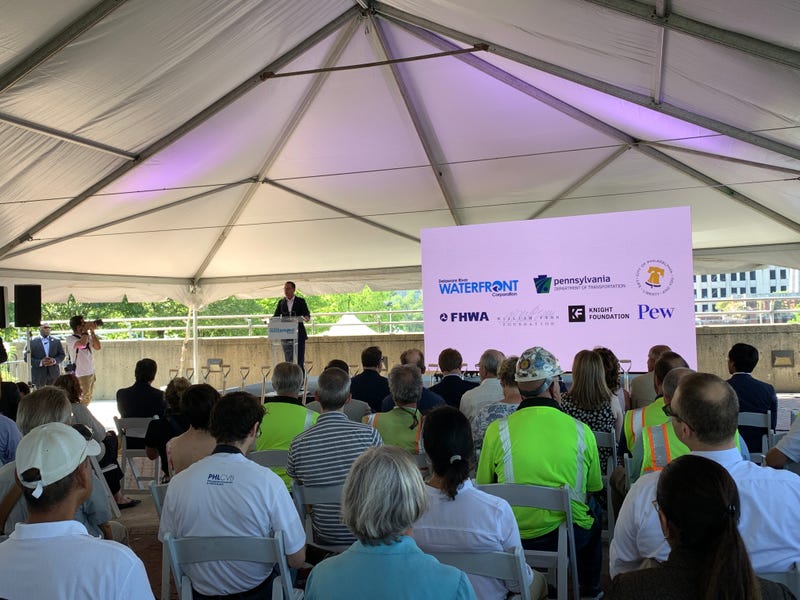
PHILADELPHIA (KYW Newsradio) — With a ceremonial turn of the shovel, Gov. Josh Shapiro and other city and state leaders kicked off construction of a park over I-95 designed to reconnect the city with the Delaware River waterfront.
The long-discussed $329 million project includes demolishing the existing I-95 cap between Chestnut and Walnut Streets, rebuilding it and expanding it over Columbus Boulevard. The park would reconnect what I-95 divided decades ago.
Construction will take about five years. When it’s finished, it will link Front Street with an 11.5-acre park that angles toward the Delaware River, said Joe Forkin, president of the Delaware River Waterfront Corporation.
"[At] Front and Chestnut Streets, for instance, you can’t see the river and you have to take a very narrow pedestrian bridge over and hope there’s something on the other side of it,” Forkin told KYW Newsradio. “This project puts a 4-acre bridge and cover over the highway and Delaware Avenue and then a 7-acre tilted park to the waterfront.”
Plans call for a pavilion with a café as well as gardens, an amphitheater and a relocated Blue Cross RiverRink at the park, Forkin said.
When I-95 was built through Philadelphia in the 1960s and '70s, it severed the connection between Old City and the Delaware River. "I grew up in a neighborhood where literally thousands of homes were taken to build I-95," Mayor Jim Kenney said at the groundbreaking ceremony at Penn’s Landing. "The original construction of I-95 was traumatic for the city."
Shapiro said the project led by Buckley Construction will redefine Penn’s Landing. “We can do big things here in this city and we’ve got our A-team on it – the team that helped us rebuild I-95 in just 12 days,” Shapiro said.
Since springtime, crews have been relocating utilities to prepare for demolition of the existing cap between Walnut and Chestnut Streets. That demolition will require some closures of I-95, said PennDOT secretary Mike Carroll.
“That will occur over the course of the winter and into the spring, I’m guessing," Carroll said. "We’ll minimize the inconvenience as much as possible by having it done in the overnight hours.”
Money from the city, state and federal governments as well as foundations will fund the project.

